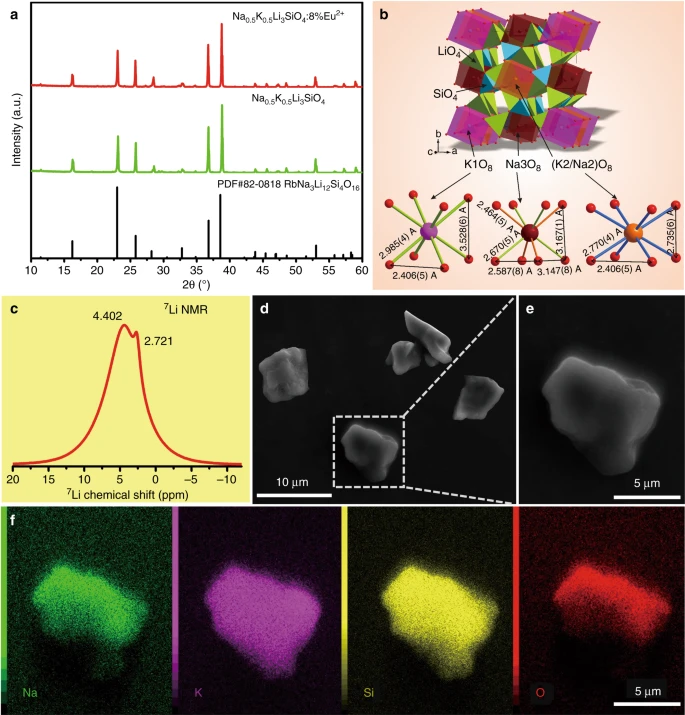Light Sci Appl., 8, 38 (2019). https://www.nature.com/articles/s41377-019-0148-8

Phosphor-converted white LEDs rely on combining a blue-emitting InGaN chip with yellow and red-emitting luminescent materials. The discovery of cyan-emitting (470–500 nm) phosphors is a challenge to compensate for the spectral gap and produce full-spectrum white light. Na0.5K0.5Li3SiO4:Eu2+ (NKLSO:Eu2+) phosphor was developed with impressive properties, providing cyan emission at 486 nm with a narrow full width at half maximum (FWHM) of only 20.7 nm, and good thermal stability with an integrated emission loss of only 7% at 150 °C. The ultra-narrow-band cyan emission results from the high-symmetry cation sites, leading to almost ideal cubic coordination for UCr4C4-type compounds. NKLSO:Eu2+ phosphor allows the valley between the blue and yellow emission peaks in the white LED device to be filled, and the color-rendering index can be enhanced from 86 to 95.2, suggesting great applications in full-spectrum white LEDs.


